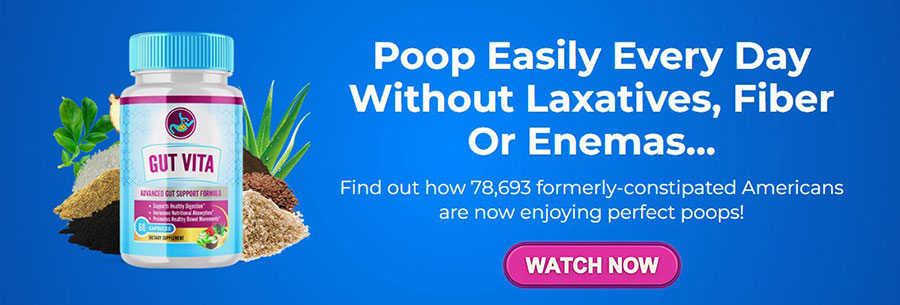Best Probiotics for Inflammatory Bowel Disease
When I was first diagnosed with Inflammatory Bowel Disease (IBD), it felt like my body had betrayed me. Flare-ups would hit like uninvited storms, leaving me exhausted and in pain. I tried medication after medication, but it wasn’t until I began exploring gut health—and specifically probiotics—that I found a pathway to relief.
Probiotics, often described as the “good bacteria,” became a cornerstone of my journey. They’re tiny but mighty, working behind the scenes to restore balance and calm the inflammation in my gut. In this article, I’ll share what I’ve learned about the best probiotics for inflammatory bowel disease, blending personal experience with science-backed insights to help you find relief and regain control of your health.
What Is IBD and Why Do Probiotics Matter?
Inflammatory Bowel Disease (IBD) is an umbrella term for chronic inflammatory conditions of the gastrointestinal (GI) tract, including Crohn’s disease and ulcerative colitis. Both conditions disrupt the gut’s microbiome—the community of bacteria, fungi, and other microbes living in your digestive system.
When the gut microbiome is imbalanced, harmful bacteria can take over, triggering or worsening inflammation. Probiotics help restore this balance by:
- Boosting the population of beneficial bacteria.
- Enhancing the gut barrier to prevent harmful bacteria from entering the bloodstream.
- Producing anti-inflammatory compounds that calm the gut.
My Journey with Probiotics and IBD
I’ll never forget the day my doctor first mentioned probiotics. At that point, I was skeptical. How could something as simple as a capsule filled with bacteria help with the intense pain and discomfort I was experiencing? But I was desperate for answers, so I decided to give it a try.
Within weeks of starting a high-quality probiotic, I noticed subtle changes. My bloating decreased, my energy improved, and my flares became less severe. Over time, probiotics became a crucial part of my IBD management plan.
What to Look for in Probiotics for IBD
Not all probiotics are created equal, and choosing the right one can feel overwhelming. Here’s what to consider:
- Strains Matter:
Different probiotic strains have different effects on the gut. For IBD, look for strains like:- Lactobacillus rhamnosus GG (LGG): Reduces inflammation and supports gut repair.
- Bifidobacterium longum: Promotes gut healing and reduces IBS-like symptoms.
- Saccharomyces boulardii: A beneficial yeast that combats harmful bacteria.
- High CFU Count:
CFU (colony-forming units) indicates the number of live bacteria in each dose. For IBD, aim for at least 10 billion CFUs per serving. - Enteric Coating:
This ensures the probiotics survive stomach acid and reach the intestines, where they’re needed.
The 5 Best Probiotic Strains for IBD
1. Lactobacillus rhamnosus GG (LGG)
Why It’s Great:
This strain has been extensively studied for its ability to reduce gut inflammation and enhance the gut barrier. It’s particularly effective for diarrhea and reducing IBD flares.
Personal Insight:
When I added a supplement with LGG to my routine, I noticed fewer urgent trips to the bathroom—a small change that made a huge difference in my quality of life.
2. Bifidobacterium longum
Why It’s Great:
This strain is a powerhouse for gut repair, reducing IBS-like symptoms and promoting overall digestive health.
Personal Insight:
I started taking a multi-strain probiotic that included Bifidobacterium longum during a flare. It felt like my gut was finally getting the support it needed to calm down and start healing.
3. Saccharomyces boulardii
Why It’s Great:
Unlike bacteria-based probiotics, this beneficial yeast fights harmful bacteria and reduces diarrhea.
Personal Insight:
Adding Saccharomyces boulardii was a game-changer for me. During a particularly rough patch, it helped stabilize my digestion and gave me the confidence to leave the house without fear of sudden symptoms.
4. Lactobacillus plantarum
Why It’s Great:
Known for its anti-inflammatory properties, this strain supports gut lining repair and reduces bloating.
Personal Insight:
This strain worked wonders for my bloating. Within a week, my belly felt lighter, and I had more energy to focus on life beyond my symptoms.
5. VSL#3
Why It’s Great:
VSL#3 is a high-potency, multi-strain probiotic specifically formulated for IBD. It’s been clinically shown to reduce symptoms of ulcerative colitis and pouchitis.
Personal Insight:
When I first tried VSL#3, I was amazed at how quickly it reduced my symptoms. It’s pricier than other probiotics, but for me, the results were worth every penny.
How to Incorporate Probiotics into Your Routine
1. Start Slowly:
Introduce probiotics gradually to give your body time to adjust.
2. Pair with Prebiotics:
Prebiotics, found in foods like garlic, onions, and bananas, feed the good bacteria and help them thrive.
Personal Insight:
I started drinking a morning smoothie with prebiotic-rich ingredients like green bananas and spinach. It felt like I was setting my gut up for success every day.
Dietary Tips to Support Gut Health in IBD
Probiotics work best when paired with a gut-friendly diet. Here are some tips:
- Eat Fermented Foods:
Incorporate yogurt, kefir, kimchi, and sauerkraut for natural sources of probiotics. - Focus on Whole Foods:
Minimize processed foods and prioritize fiber-rich fruits and vegetables (as tolerated). - Hydrate:
Drink plenty of water to support digestion and reduce inflammation.
Lifestyle Practices to Enhance Probiotic Benefits
- Manage Stress:
Chronic stress disrupts the gut-brain axis, making symptoms worse. Practice yoga, meditation, or deep breathing to stay calm. - Get Quality Sleep:
A good night’s rest supports gut healing and reduces inflammation.
Personal Insight:
Adding a bedtime routine that included journaling and herbal tea helped me unwind and improved both my sleep and my digestion.
When to See a Doctor
While probiotics can be incredibly beneficial, they’re not a cure-all. If you’re not seeing improvement or experiencing worsening symptoms, consult a healthcare provider.
Final Thoughts: A Journey Toward Gut Health
Probiotics have been a lifeline in my journey with IBD. They’ve helped me find relief, regain control over my life, and experience moments of joy that felt out of reach during my worst flares.
If you’re considering probiotics, start with small changes and listen to your body. Healing takes time, but with patience and persistence, you can create a gut environment that supports your overall health and happiness.
Here’s to your journey toward better gut health—one probiotic at a time!


